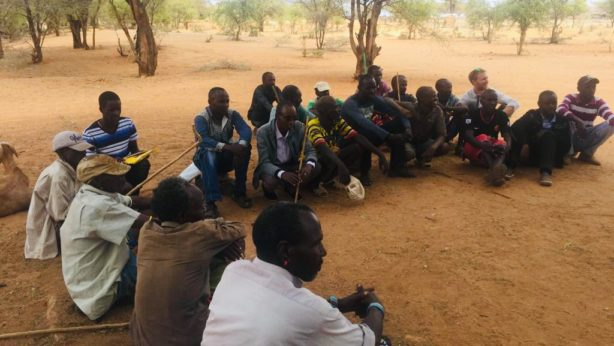Stories of Success – Joy
January 25, 2019Fresh Ministries, Inc. Partners with the Jacksonville’s Police Athletic League to Promote Healthy Lifestyles
July 17, 2019In order to alleviate food insecurity in U.S. Virgin Islands and Africa, FreshMinistries has partnered with the network of Agribusiness Economic Development Centers to create agribusiness functions around state-of-the-art climate controlled greenhouse farming. These programs will combine education and hands-on training and production of farm-raised fish and fresh produce for areas that import nearly all of their food.
This technique of farming would require just a fraction of the space and only 5 percent of the water needed for traditional farming. Native Fresh uses a variety of grow techniques including Nutrient Film Technique, Flood and Drain Beds and Deep Water Culture. The techniques use the same nutrient-rich water that is then circulated throughout the system at all times, and is recirculated. These techniques aim to maximize efficiency by minimizing inputs and maximizing outputs through more practical application.
Aquaponics combines aquaculture and hydroponics as both fish and plants are farmed in a coexisting relationship allowing both to thrive. The aquaponics farm systems are environmentally conscious and productive and can be built on land, such as rooftops of flat-roofed urban homes or vacant lots that may be considered unsuitable for traditional farming.
After receiving a federal grant in October of 2015 for $1.98 million, FreshMinistries will be able to create an aquaponics training center in the U.S. Virgin Islands.
There will be a total of six facilities that will be built on the site of the Old Bethlehem Sugar Works Factory on the U.S. Virgin Island of St. Croix. Three of the facilities will be 6,000-square-feet, which will be dedicated to training, and another three 3,000-square-foot facilities will be built for incubation. Through incubation, 70 new farming-related businesses will be provided over a 20 year period. The first facility is expected to be complete by September.
“Once the first training facility is complete, we will begin training entrepreneurs in various grow and sustainability techniques. The entrepreneurs will then be engaged in the construction of the next facility, allowing them to intimately familiarize themselves with all components of the greenhouse and system,” said Bobby Lee, Director of Urban Operations at Fresh Ministries.
In comparison to traditional farming, aquaponic facilities can be placed essentially anywhere in order to accommodate spaces such as basements, alleys, roofs and concrete parking lots. While traditional farmers are seasonally limited, the ability to control the environment allows for crops to grow year round without the concern of extreme weather conditions. With just a 6,000 square feet of space, an aquaponic facility can produce over 25,000 heads of lettuce per month while a traditional farmer can only expect to produce 25,000 heads per 43,560 square foot.
Not only are aquaponic facilities extremely productive they are also highly sustainable. All of the facilities will be powered by either solar or wind energy and will utilize rainwater catchment systems to supplement any water loss from plant absorption or evaporation.
While the facilities in the U.S. Virgin Islands will soon be underway, there are plans in the works for aquaponic facilities in South Africa. “Our South African based not-for-profit organization, Be the Change South Africa, in partnership with Conservation South Africa, is in the beginning phases of building a 6,000-square-foot training facility at the Acorns to Oaks Comprehensive High School in Mpumalanga, South Africa,” said Lee.
These new ventures will allow others to raise themselves up from poverty as farming techniques will provide a solution to unemployment as well as giving people access to fresh produce and other societal benefits.


